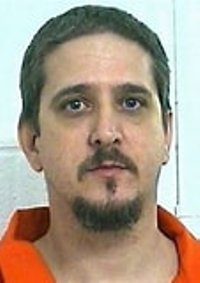Oklahoma death row inmate’s case to be heard by Supreme Court

WASHINGTON (AP) — Transgender rights, the regulation of “ghost guns” and the death penalty highlight the Supreme Court’s election-season term that begins Monday, with the prospect of the court’s intervention in voting disputes lurking in the background.
The court’s involvement in election disputes might depend on the closeness of the outcome and whether the justices’ intervention would tip the outcome, David Cole, the outgoing legal director of the American Civil Liberties Union, said at a recent Washington event.
“I don’t think the court wants to get involved, but it may have to,” Cole said.
When the justices gather Monday morning on a date set by federal law, they will shake hands with each other as they always do. Just after 10 o’clock, they will emerge from behind freshly cleaned heavy red drapery and take their seats on the curved mahogany bench, Chief Justice John Roberts in the center chair and his eight colleagues seated in order of seniority.
There are likely to be smiles and shared private jokes. But the friendliness of that moment will not sweep away tensions that have barely been concealed.
During the summer, two justices, Elena Kagan and Jackson, voiced support for toughening the new ethics code that so far lacks a means of enforcement.
The leak to The New York Times of the contents of a memo Roberts wrote last winter that outlined his approach to the court’s presidential immunity decision “was nothing short of shocking,” Supreme Court lawyer Lisa Blatt said last week at a Washington preview of the coming term.
Two years ago, Politico obtained the draft decision overturning Roe v. Wade, the landmark abortion case.
Important cases dot the court’s calendar, beginning Tuesday. The court will take up a challenge to a Biden administration attempt to regulate hard-to-trace “ghost guns” that had been turning up at crime scenes in increasing numbers. The Supreme Court jumped into the case after the conservative 5th U.S. Circuit Court of Appeals invalidated the regulation.
A day after the guns case, the justices will take up the latest twist in Oklahoma death row inmate Richard Glossip‘s long quest for freedom. His case is an instance in which prosecutors are conceding mistakes in the trial that led to Glossip’s conviction and death sentence.
The highest-profile case on the agenda so far is a fight over transgender rights that is focused on state bans on what some call gender-affirming care. It probably will be argued in December.
Republican-led states have enacted a variety of restrictions on transgender surgeries, school sports participation, bathroom usage and drag shows. The case before the high court involves a law in Tennessee that restrict puberty blockers and hormone therapy for kids. About half the states have enacted similar restrictions.
Also on tap for the late fall is an appeal from the adult entertainment industry to overturn a Texas law that requires pornographic websites to verify the age of their users.
Only about half the court’s calendar for the term has been filled, and several big cases could be added. Among those is a push by Republican-led states and conservative legal outlets to further restrict federal agencies.
The immediate target is the method the Federal Communications Commission has used to fund telephone service for rural and low-income people and broadband services for schools and libraries.
The case, which the administration has appealed to the Supreme Court, could give the justices the opportunity to revive a legal doctrine known as nondelegation that has not been used to strike down legislation in nearly 90 years. Several conservative justices have expressed support for the idea of limiting the authority Congress can delegate to federal agencies.



